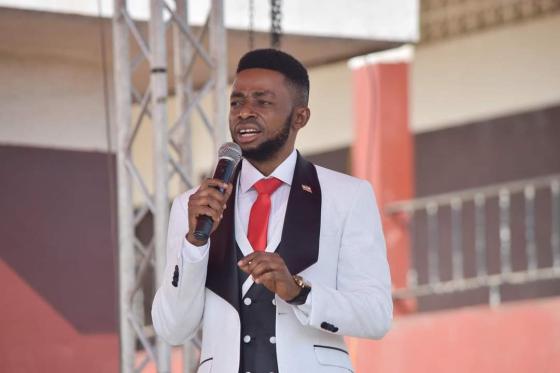Liberia: Is Apostle Abraham Kromah Not Culpable for Deadly Stampede in New Kru Town?

If the New Kru Town stampede that resulted in the deaths of nearly 30 people had happened at a political rally or musical concert, the case would have been different by now. The public would have demanded prosecution and even gone to the extent of protesting the deaths of their compatriots.
It has been exactly seven days since the Liberia National Police began investigating the cause of the stampede and, so far, no arrests or indictments have been made.
But since the case involves Apostle Abraham Kromah, a man who claims to cure all forms of illness as well as casting out demons from humans, the blame has been shifted onto the criminals who invaded the crusade when worshippers started to leave.
And while it is true that the criminals bear significant responsibility, since the stampede was triggered by their attacks, the blame should not be theirs to bear entirely — as doing so may be an attempt to exonerate Kromah and his church from facing prosecution for their apparent role in the stampede.
Murphy’s Law
For the fact that Apostle Kromah was not just a preacher at the crusade, but the organizer of the event, he had to have knowledge about the event planning process and had to be aware of the security risk of hosting a crusade in New Kru Town, which is notorious for criminal activity after 7 p.m.
It can be argued that if the crusade had ended by no later than 6 p.m., the tragedy would not have happened and the criminals would not have attempted to steal. But since the crusade went into the night hours, it exposed the vulnerability of the worshippers.
The situation was made worse not just by the limited security presence at the event, but the absence of lighting at the D. Twe High School gate (where the stampede took place), which became a trap for the worshippers.
New Kru Town is usually unsafe at night — therefore, hosting a crusade in such an area without adequate preparation, especially adequate security, is a serious risk.
Murphy’s FIrst Law states: “Anything that can go wrong, will go wrong,” (and it will happen at the worst possible time).
But the deadly stampede could have been avoided if a risk assessment had been carried out to guide preparedness, and planning to facilitate a successful mass gathering.
The essence of risk assessment is to ask what could happen and how likely it would happen. It provides an opportunity to rapidly identify public health and safety concerns during mass gatherings, to communicate information about them, and to respond to them.
But since Apostle Kromah’s primary goal was to preach and perform signs and wonders, he opted to downplay the need for more manpower or security for the safety of the crowd, as well as to reach them in case of an incident, not to mention, rapid response in a worst-case scenario.
This shows that the Apostle and his company of crusade organizers were unprepared to the point of negligence. And being preoccupied with the so-called ‘clearing of demons’ in New Kru Town, he jeopardized the security of the poverty-stricken Liberians whose quest for the miraculous would lead them into harm’s way – even to the Great Beyond.
“Prevention better than cure”
In this regard, we once again reiterate that the New Kru Town tragedy might have been prevented from happening through careful identification of causes/threats; assessing the risks posed by them, especially since the crusade was being held during the night hours in criminal areas.
The failure of Apostle Kromah and his team to conduct crusade risk assessment were the beginning of chaos as they missed out on identifying potential security threats, and disasters.
That lack of knowledge suggests they never had a clear understanding of the probability that a specific potential threat would occur, its effects, and their severity; how and when the visitors need to be warned about the threat, and how long the threat may last.
Moreover, there were hardly any announcements before or during the event that targeted self-protection and emergency procedures in a high-density crowd, a key ingredient in planning a mass gathering.
Thus, the general public was unaware of the risks and hazards in their environment.
However, if they had done so, they were going to be aware of the security threats of ending the crusade by 9 p.m., as well as the danger of keeping the entrance to the field dark, and having limited security, which only focuses on Apostle Kromah.
And the fact that Apostle Kromah, as the principal architect of the crusade, downplayed the security of his congregants, renders him culpable for negligent manslaughter and bodily harm.
His action to organize a crusade in a crime prone community late into the night, without providing security for the attendees besides himself, warrants such a charge.
